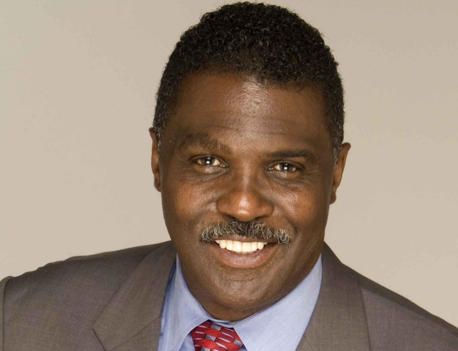By Glenn Ellis
We all suffer in hot weather. However, for elderly and disabled people and those with chronic health conditions such as vascular disease or diabetes, the weather does not have to hit 100 degrees to cause heat stress or even deadly heat stroke.
We all know that hot weather can be dangerous. This is especially true for older adults. Every summer, nearly 200 Americans die of health problems caused by high heat and humidity. Most of these individuals happen to be age 50 or older. In fact, 40 percent of heat-related deaths in the U.S. were among people over 65, according to a University of Chicago Medical Center study.
As we age, the effects of sun exposure become more serious.
Heat is a potentially deadly problem: nearly 400 Americans die from heat waves each year. Most of them are elderly people who often don’t realize when they are overheating and in danger.
Part of the problem lies in the fact that older people simply can’t handle the heat as well as younger ones, because they don’t sweat as effectively and have poorer circulation. Obesity, heart disease, dementia, diabetes and other chronic medical conditions can compound the risk. So can certain medications, especially diuretics or those prescribed for hypertension and Parkinson’s disease.
The elderly are often the most vulnerable to severe heat, according to the Centers for Disease Control (CDC) in Atlanta. Why? Their bodies do not adjust as well as young people to sudden changes in temperature, they are more likely to have a chronic medical condition that changes normal body responses to heat and they are often on a prescription medicine that impairs the body’s ability to regulate its temperature or that inhibits perspiration.
Medications taken for a variety of diseases and symptoms can also interfere with one’s ability to manage hotter weather. These medications include antipsychotic drugs commonly given to Alzheimer’s patients to control agitation, cholesterol drugs, tranquilizers, sedatives (including over-the-counter sleeping pills), amphetamines, diuretics and drugs to control blood pressure, antihistamines, and some antidepressants.
A person with cognitive impairment, whether from disease or injury, may not be able to communicate distress. In some cases, they may not even “feel” the heat or discomfort because of changes in the brain’s abilities to process sensory information or regulate their body’s responses to heat.
Caregivers can prevent a heat-related emergency (hyperthermia) by keeping a loved one cool, watching for signs of heat stress and following these tips for dealing with hot weather.
If you are caring for an elderly or disabled person, learn the signs of heat-related problems. Seek medical assistance for any of the following signs and — if you suspect heat stroke — call 911 or medical personnel immediately.
Headache, nausea and fatigue are signs of at least some heat stress.
Heat fatigue: cool, moist skin, a weakened pulse, feeling faint.
Heat syncope: sudden dizziness, pale, sweaty looking skin that is moist and cool to the touch, weakened pulse and rapid heart rate but normal body temperature (that is, 98.6 degrees, taken with a thermometer).
Heat cramps: muscle spasms in the abdomen, arms or legs after exercise. (Note that these may be caused by lack of salt but do not give salt or salt tablets without consulting a physician.)
Heat exhaustion: this is warning that the body is getting too hot. Watch for thirst, giddiness, weakness, lack of coordination, nausea, and profuse sweating. Cold, clammy skin. Body temperature may be normal (98.6 degrees). Pulse is normal or raised slightly. Pupils may contract. Urination decreases and the person may vomit.
Heat stroke: this is life-threatening. Immediate medical attention is required. Death can occur quickly when heat stroke occurs. Body temperature rises above 100 degrees F (some sources say 104 degrees F), and the person may become confused, combative, behave bizarrely, feel faint, stagger. Pulse is rapid. Skin is dry, flushed and may feel hot. Lack of sweating. Breathing may be fast and shallow. Pupils may widen or dilate. Delirium, seizures or convulsions, and coma are possible.
Caregivers should stay on the alert for signs of confusion or altered mental states in seniors who are out in hot weather, as it could be a sign of heat stroke. If a person should collapse or pass out, it’s a medical emergency, and 911 should be called immediately.
During hot weather, think about making daily visits to older relatives and neighbors. Remind them to drink lots of water or juice, as long as their doctor hasn’t recommended otherwise because of a pre-existing condition. If there is a heat wave, offer to help them go someplace cool, such as air-conditioned malls, libraries, or senior centers.
Remember, I’m not a doctor. I just sound like one.
Take good care of yourself and live the best life possible!
The information included in this column is for educational purposes only. It is not intended nor implied to be a substitute for professional medical advice. The reader should always consult his or her healthcare provider to determine the appropriateness of the information for their own situation or if they have any questions regarding a medical condition or treatment plan.
Glenn Ellis, is a Health Advocacy Communications Specialist. He is the author of Which Doctor?, and Information is the Best Medicine. For more good health information, visit: www.glennellis.com





